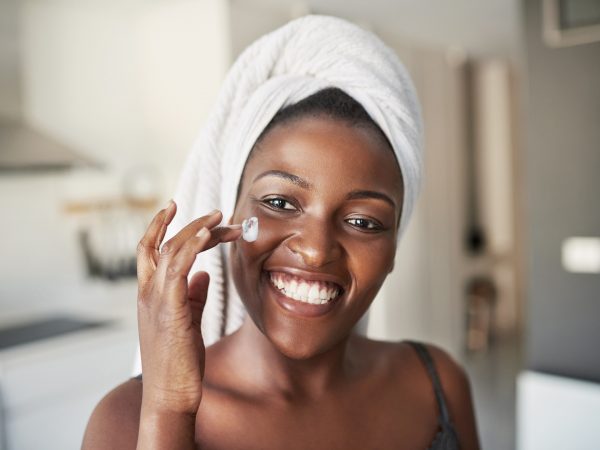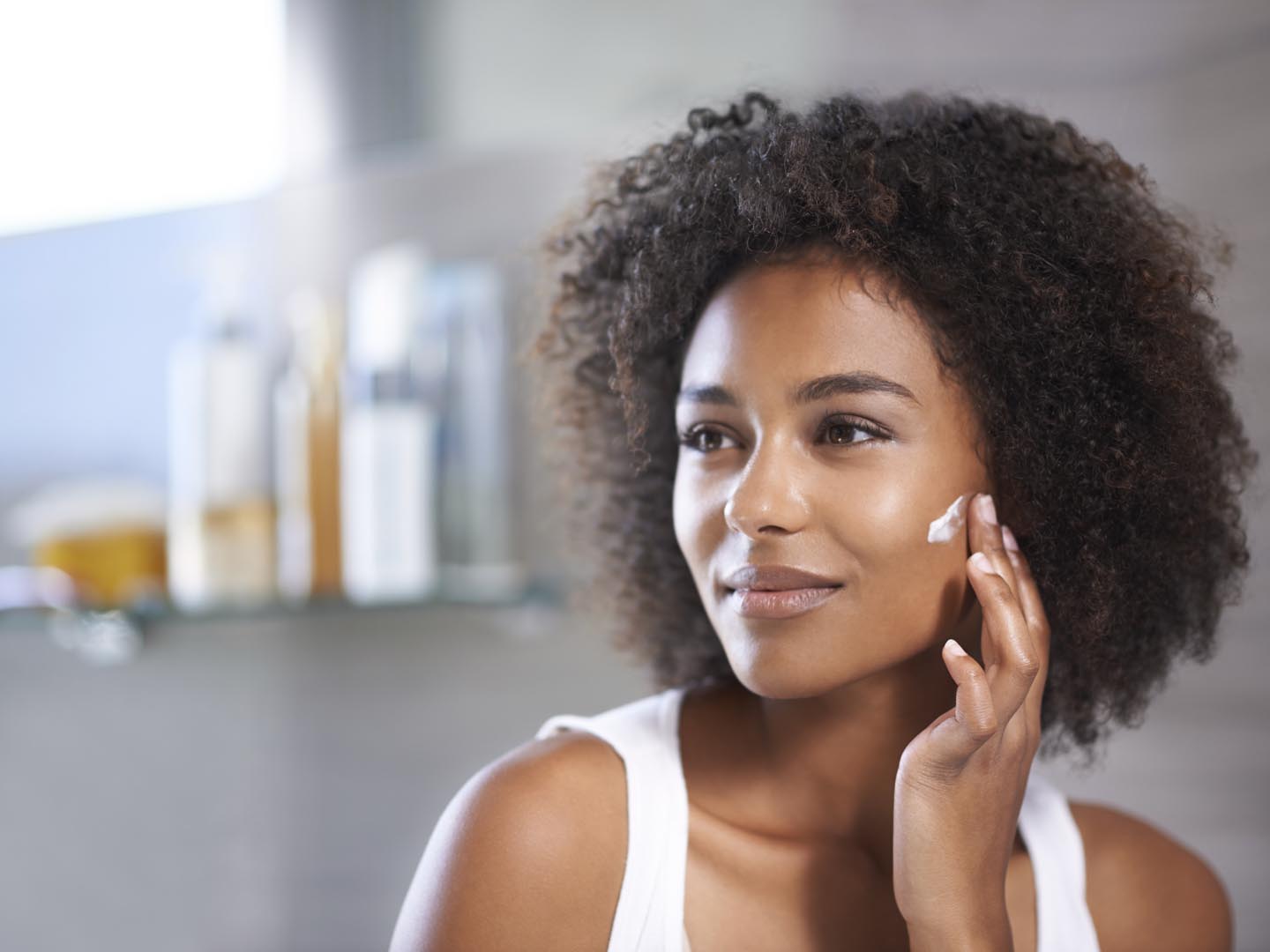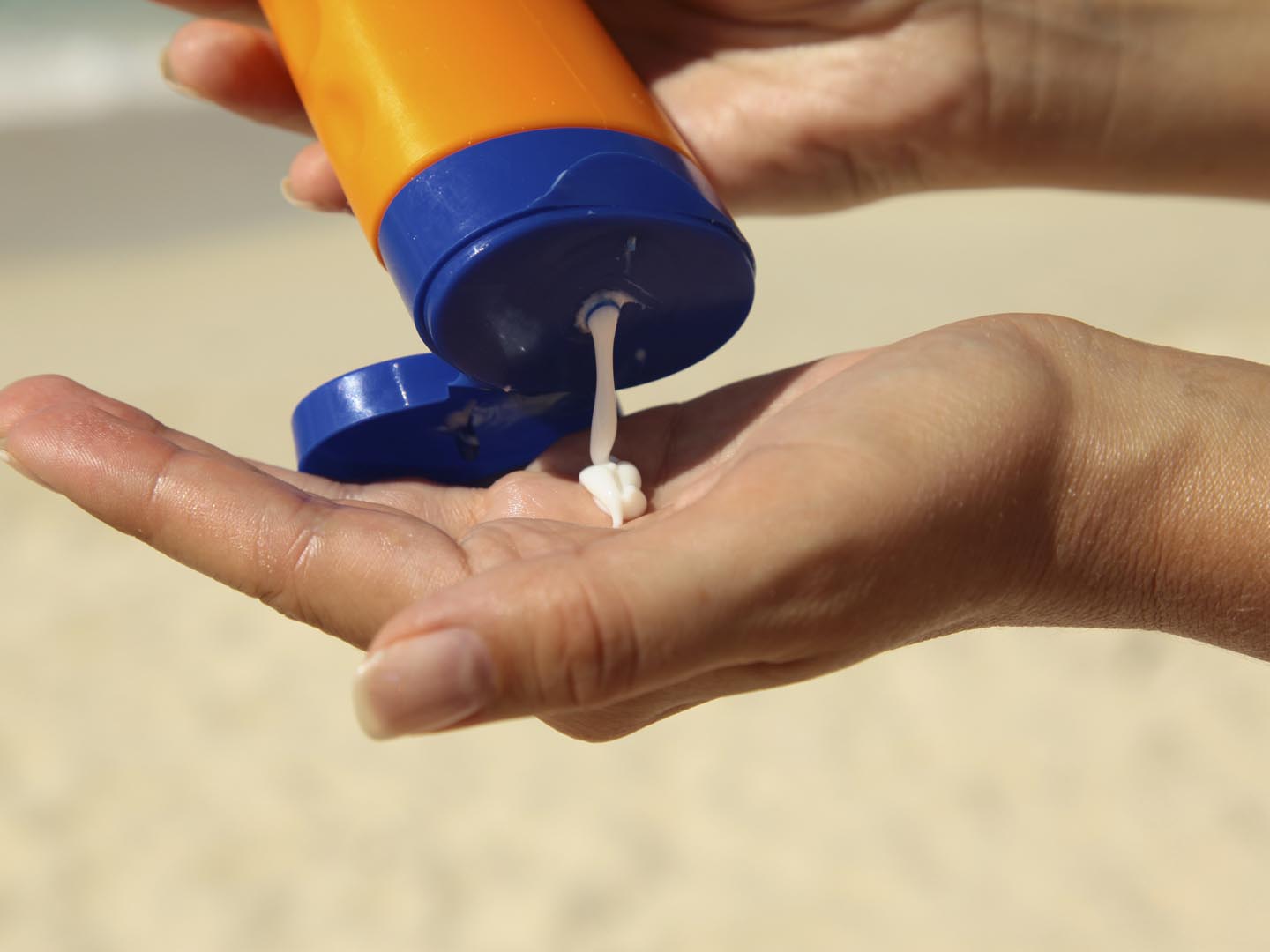Probiotics For Your Skin?
Are there any benefits to probiotics in skin creams?
Andrew Weil, M.D. | September 30, 2021

You’re likely familiar with oral probiotics, found in fermented foods such as kimchi, sauerkraut, and yogurt with live cultures and sold in supplement form as well. When consumed, probiotics like Lactobacillus or Bifidobacterium can help repopulate your digestive system with “good” bacteria and keep the gut microbiome in balance. Probiotics may also help keep your digestive tract functioning optimally, restore normal flora after antibiotic use, and support immune system function.
Just as your gut has its own microbiome — the collective name for the microbes (bacteria, viruses and fungi) that live in and on us — so does your skin. In fact, more than a thousand species of bacteria reside on our skin, where they help keep it hydrated, fight infection, and protect against environmental damage. Different types of bacteria live in different areas of your skin. For example, certain species populate moist places like the insides of your knees and elbows. Others reside on the arms, feet, and scalp.
As with the gut, any number of factors can throw your skin microbiome out of balance. These include antibiotics, as well as the use of soaps, scrubs, and other skincare products. Particular skin conditions can be signs that your skin microbiome is out of whack: Dry, flaky skin, rosacea, eczema, and even acne could be the result of — or at least exacerbated by — an imbalance. You can help restore that balance by using non-soap cleansers (typically labeled “for sensitive skin”) or skipping cleanser altogether and washing your face with water alone.
There’s also a growing body of evidence to suggest that adding probiotics to your skincare regimen might help encourage a healthy skin microbiome. For example, some strains of bacteria have been found to protect against oxidative stress and inflammation and strengthen the skin’s barrier, which in turn might help alleviate symptoms of acne, rosacea, and dermatitis. Some probiotics have been shown to support the skin’s production of fats called ceramides, low levels of which have been linked to eczema. Ceramides help maintain moisture in the skin and protect against bacteria that can worsen acne. In addition, early research suggests that probiotics might help slow age-related changes to the skin and counteract the effects of exposure to ultraviolet light.
While oral probiotics may work systemically to benefit skin, topical products could have an even more direct effect. Look for creams, gels, and serums that contain strains of bacteria shown to benefit skin, such as Bifidobacterium, Lactobacillus, Vitreoscilla, Bacillus coagulans, and Streptococcus thermophilus. Follow package directions.
Andrew Weil, M.D.
Source:
Knackstedt, R, Knackstedt, T, Gatherwright, J. The role of topical probiotics in skin conditions: A systematic review of animal and human studies and implications for future therapies. Exp Dermatol. 2020; 29: 15– 21. https://doi.org/10.1111/exd.14032












